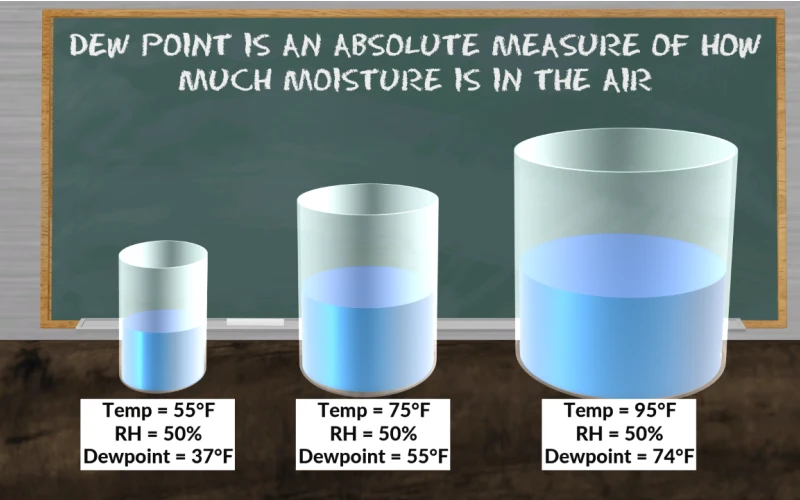
# High Dew Point Impact on Human Comfort and Health
Understanding Dew Point and Its Significance
The dew point is the temperature at which air becomes saturated with water vapor, leading to condensation. When we talk about a high dew point, we’re referring to conditions where the air feels particularly muggy and uncomfortable. Unlike relative humidity, which changes with temperature, the dew point gives us a more accurate measure of how much moisture is actually in the air.
How High Dew Point Affects Human Comfort
When the dew point rises above 60°F (15.5°C), most people begin to notice increased discomfort. At levels above 70°F (21°C), the air feels oppressive and sticky. Here’s why:
- Our bodies rely on sweat evaporation to cool down
- High dew point means slower evaporation rates
- This leads to that familiar “sticky” feeling
- Physical activity becomes more exhausting
Health Implications of Prolonged High Dew Point Exposure
Extended periods of high dew point conditions can lead to several health concerns:
Heat-Related Illnesses
With the body’s cooling mechanism impaired, risks of heat exhaustion and heat stroke increase significantly. Elderly individuals and those with pre-existing conditions are particularly vulnerable.
Respiratory Issues
High moisture levels can exacerbate asthma and other respiratory conditions. Mold and dust mites thrive in these conditions, worsening indoor air quality.
Cardiovascular Stress
The heart works harder to circulate blood to the skin’s surface for cooling, putting additional strain on the cardiovascular system.
Mitigation Strategies for High Dew Point Conditions
To maintain comfort and health during high dew point periods:
| Strategy | Effectiveness |
|---|---|
| Air conditioning | Highly effective – removes moisture from air |
| Dehumidifiers | Very effective for indoor spaces |
| Proper ventilation | Moderately effective when combined with fans |
| Lightweight clothing | Helps with comfort but doesn’t address root cause |
Conclusion
Understanding and responding to high dew point conditions is crucial for maintaining both comfort and health. By recognizing the signs of discomfort and implementing appropriate mitigation strategies, we can better cope with these challenging weather conditions. Remember that while we can’t control outdoor dew points, we can create more comfortable indoor environments during periods of high atmospheric moisture.
Keyword: high dew point